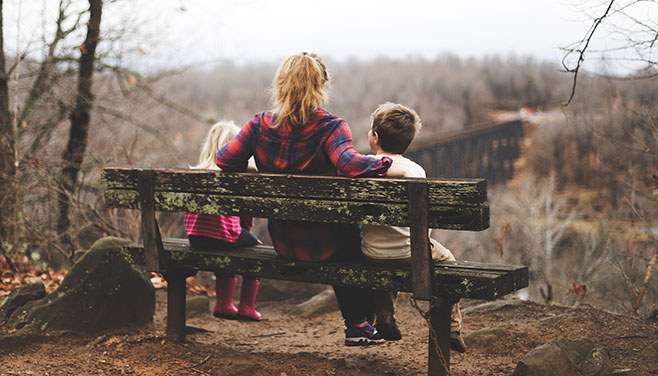Children raised with good boundaries learn that they are not only responsible for their lives, but also free to live their lives any way they choose, as long as they take responsibility for their choices. For the responsible adult, the sky is the limit.
Henry Cloud
Money.
Belongings.
Household rules.
Feelings.
Responsibilities.
Personal space.
What kinds of boundaries have your children learned to respect so far?
If it feels like they’ve still got a long way to go… don’t worry. There’s still a lot you can teach them.
Today we’re continuing the conversation we began last week, turning our focus on to the importance of healthy boundaries in parenting.
A unique challenge
Setting healthy boundaries in parenting represents a unique challenge.
After all, most parents feel a deep sense of responsibility for their child’s well-being. The thought of detaching from that responsibility might feel frightening, negligent, or even cruel.
But, it’s not about forfeiting responsibility at all. In fact, establishing healthy boundaries can help clarify who’s responsible for what… resulting in better quality of life for both you and your child, in the long run.
Watering your own lawn
Drs. John Townsend and Henry Cloud, authors of Boundaries, offer this analogy:
When boundaries between you and your child are too relaxed, it’s as if the child is your neighbor, who never waters his lawn. But, whenever you turn on your sprinkler system, your water only falls on his lawn. Your grass is turning brown and dying, but your neighbor looks down at his green grass and thinks to himself, ‘My yard is doing fine.’
That’s how your child’s life is. They don’t study, or plan, or work, yet have a nice place to live, plenty of money, and all the rights of a family member who is doing their part.
If you would define the property lines a little better, if you would fix the sprinkler system so that the water would fall on your lawn, and if he didn’t water his own lawn, he would have to live in dirt. He might not like that after a while.
We can think of boundaries in parenting, then, as clear and helpful property lines. They not only protect us from the burnout and exhaustion that comes from overextending our resources, but they also encourage our children to assume appropriate ownership of their own lives.
For parents of children and adolescents
One of the best gifts we can give our children is a healthy understanding of boundaries. And one of the best ways to do this is by modeling what we’d like them to learn:
- respect for personal space and safety (e.g., appropriate touching, consent)
- the ability to say (and respect) the word No
- personal responsibility (not blaming others)
- differentiating between your emotions and others’
- taking proactive steps to resolve problems
When children are very young, there’s a natural tendency for parents to intervene frequently, in practical ways, to help the child avoid harm. This can be an important part of their learning.
As children grow and develop, however, the nature of support they need from parents also changes. When parents don’t adjust their behavior to match their child’s developmental needs, they run the risk of becoming over-involved in their children’s lives.
This not only sets a parent up for frustration and burnout; it also limits a child’s ability to fully experience, address, and learn from the problems in their own lives.
ASK YOURSELF:
1. Whose problem is this?
2. What can I do to help my child experience the problem?
3. What am I currently doing to prevent my child from experiencing the problem?
Next week, we’ll continue this series with a post on healthy boundaries between adult children and their parents.
Enjoy this post? You might also like:
Boundaries: Understanding This Emotional Wellness Buzzword
Saying No (with Kindness)
Navigating Spring Break as a Family
Ready to learn more about healthy boundaries in parenting?

